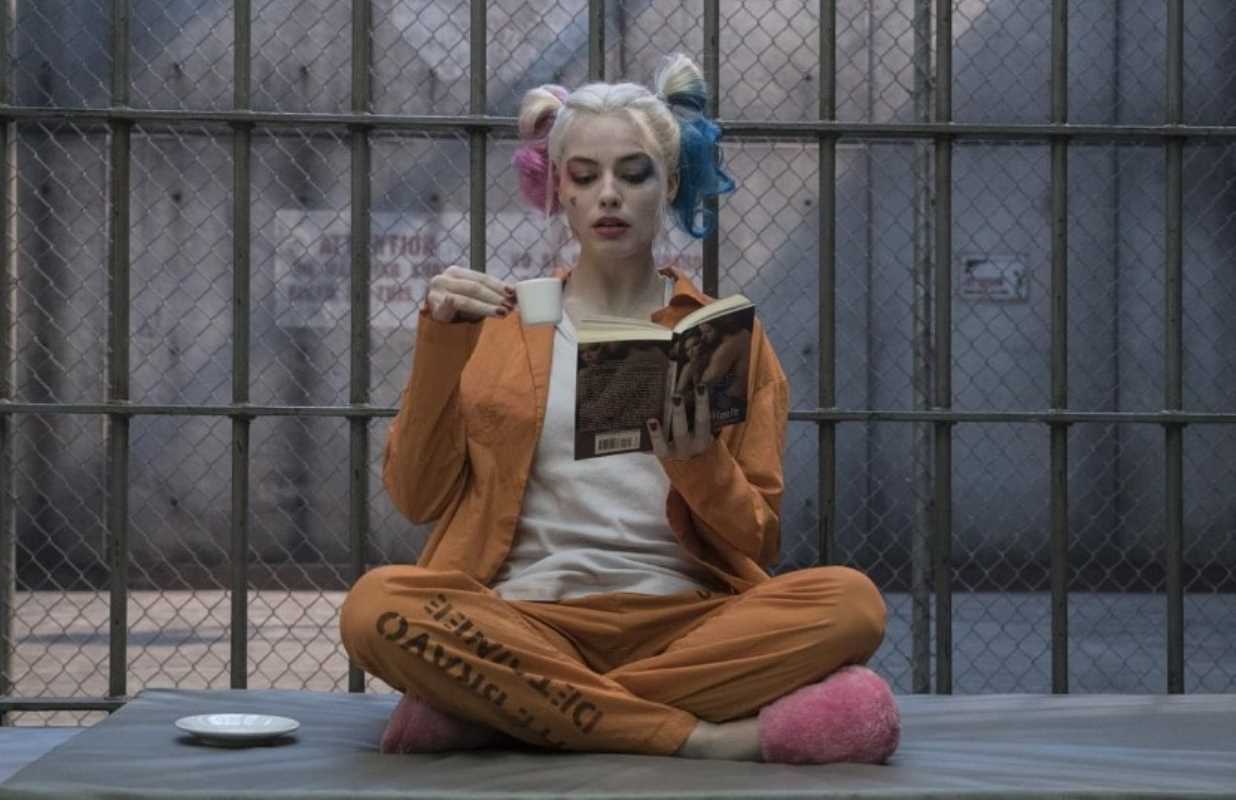In the world of cinema, hype can be a double-edged sword. A powerful marketing campaign or a big-name cast can generate immense buzz around a movie, building expectations sky-high. But what happens when those expectations aren't met? Some films, despite their initial fanfare, fail to resonate with audiences in the long run, fading from public consciousness as quickly as they arrived.
Here, we explore hyped-up movies that, for all their anticipation and promise, failed to make a lasting impact.
1. John Carter (2012)
When Disney announced John Carter, expectations soared. Adapted from Edgar Rice Burroughs’ A Princess of Mars, a seminal work in science fiction literature, the film boasted a massive $250 million budget, top-tier special effects, and Andrew Stanton, a celebrated Pixar director, at the helm. The marketing campaign painted John Carter as a sweeping epic that would rival Star Wars and Avatar.
However, upon release, the movie struggled to connect with audiences. Critics found its story convoluted and the marketing campaign confusing. Despite being a technically well-made film with a dedicated fan base, it failed to recoup its budget and quickly faded from public memory. John Carter became a cautionary tale about the dangers of overhyping and underdelivering.
2. The Lone Ranger (2013)
Another Disney misstep, The Lone Ranger was pitched as a blockbuster revival of the classic Western series. Featuring Johnny Depp as Tonto and Armie Hammer as the titular hero, the movie was directed by Gore Verbinski, who had helmed the wildly successful Pirates of the Caribbean series. With such star power and a budget of over $200 million, expectations were high.
Despite its pedigree, The Lone Ranger flopped. Critics panned its bloated runtime, inconsistent tone, and over-reliance on CGI. Audiences were similarly indifferent, leaving the movie to languish at the box office.
While Depp’s performance garnered attention—though often for the wrong reasons—the film's legacy was largely one of wasted potential.
3. Battlefield Earth (2000)
Few movies have been as hyped within niche circles as Battlefield Earth. Based on the novel by Scientology founder L. Ron Hubbard, the film was championed by John Travolta, who saw it as his passion project. Travolta, fresh off a career revival thanks to Pulp Fiction, poured his heart into the film, which promised to be a groundbreaking sci-fi epic.
Instead, Battlefield Earth became infamous for its unintentionally comedic dialogue, over-the-top performances, and bizarre cinematography. The movie bombed critically and commercially, earning Razzie Awards for Worst Picture and Worst Actor. While it remains a curiosity for fans of so-bad-it’s-good cinema, it failed to make a positive mark on film history.
4. Jupiter Ascending (2015)
The Wachowskis, known for their groundbreaking work on The Matrix, set out to create another sci-fi epic with Jupiter Ascending.
Featuring Mila Kunis, Channing Tatum, and Eddie Redmayne, the film promised dazzling visuals and a sprawling intergalactic story. The marketing campaign leaned heavily on the Wachowskis’ reputation, stirring excitement among fans of science fiction.
Unfortunately, Jupiter Ascending failed to live up to its ambitions. The film’s plot was criticized for being convoluted, and Eddie Redmayne’s bizarre performance became a meme rather than an award-winning turn. Though visually impressive, it lacked the narrative depth and innovation that audiences expected, leaving it to be remembered more for its flaws than its merits.
5. Fantastic Four (2015)
The 2015 reboot of Fantastic Four was supposed to reinvigorate the superhero franchise. Directed by Josh Trank and featuring a promising young cast including Michael B. Jordan, Kate Mara, and Miles Teller, the movie aimed to offer a darker, grittier take on Marvel’s first family.
Instead, Fantastic Four became a textbook example of a troubled production. Reports of studio interference, on-set tensions, and extensive reshoots overshadowed its release. Critics and fans alike panned the movie for its disjointed story and lackluster visuals. Despite the superhero boom of the 2010s, Fantastic Four became a box office failure and left no lasting impact on the genre.
6. The Golden Compass (2007)
Based on Philip Pullman’s beloved novel Northern Lights, The Golden Compass was intended to be the first installment in a sprawling fantasy series akin to Harry Potter or The Lord of the Rings. With a stellar cast, including Nicole Kidman and Daniel Craig, and a substantial budget, it seemed poised for success.
However, the film faced significant backlash from religious groups, which affected its reception. Critics also noted that the adaptation watered down the darker, more complex themes of Pullman’s work.
While it performed decently at the box office, it wasn’t enough to warrant sequels, and the film quickly faded from popular culture. The franchise has since been revived with more success as a television series, His Dark Materials.
7. King Arthur: Legend of the Sword (2017)
Directed by Guy Ritchie and starring Charlie Hunnam, King Arthur: Legend of the Sword aimed to reimagine the classic tale with a gritty, action-packed twist. Warner Bros. had ambitious plans for a multi-film franchise, banking on Ritchie’s signature style and a massive marketing campaign to draw audiences in.
Despite its bold visuals and high-energy action sequences, the movie failed to capture viewers’ imaginations. Critics cited its uneven tone and overcomplicated plot as major flaws. With disappointing box office returns, plans for sequels were scrapped, leaving King Arthur as a forgotten attempt to modernize a classic legend.
8. Valerian and the City of a Thousand Planets (2017)
Luc Besson, known for his visually stunning films like The Fifth Element, returned to science fiction with Valerian and the City of a Thousand Planets. Adapted from a French comic series, the film boasted breathtaking visuals, a star-studded cast, and a massive $177 million budget, making it the most expensive European film ever made.
Despite its visual splendor, Valerian was criticized for its weak story, lack of character development, and miscast leads. While it found a niche audience appreciative of its artistry, it failed to resonate with mainstream viewers and ultimately became another example of style over substance.
9. The Happening (2008)
M. Night Shyamalan, once hailed as a master of suspense, aimed to deliver another thriller with The Happening. The movie’s premise—a mysterious phenomenon causing people to commit suicide—was intriguing, and the marketing campaign teased it as a chilling, thought-provoking film.
Unfortunately, The Happening became infamous for its unintentionally hilarious dialogue and stilted performances.
Mark Wahlberg’s portrayal of a high school science teacher drew ridicule, and the film’s twist—plants releasing toxins—left audiences unimpressed. While Shyamalan has since rebounded with successful projects, The Happening remains a low point in his career.
10. Suicide Squad (2016)
Few films have generated as much pre-release hype as Suicide Squad. With a star-studded cast including Margot Robbie, Will Smith, and Jared Leto, and a marketing campaign filled with edgy visuals and rock music, the film promised a bold departure from traditional superhero fare.
However, the final product was a disappointment. Critics slammed its uneven pacing, confusing editing, and lack of character development. While Margot Robbie’s Harley Quinn became a breakout star, the movie itself struggled to leave a lasting impression beyond its controversial portrayal of the Joker.
These hyped-up movies serve as reminders that, in the world of cinema, substance must always triumph over style. While strong marketing and big budgets can generate anticipation, they cannot guarantee success. Ultimately, a film’s lasting impact depends on its ability to connect with audiences through compelling storytelling, strong performances, and a cohesive vision.







